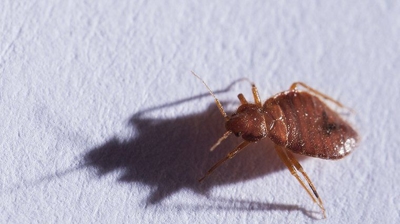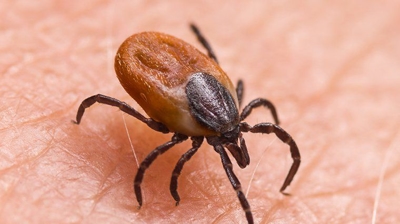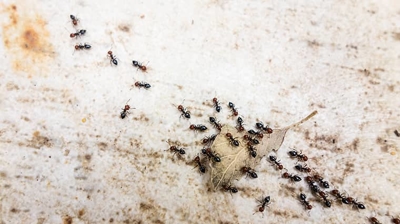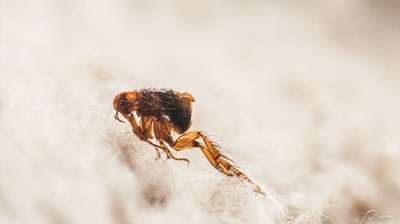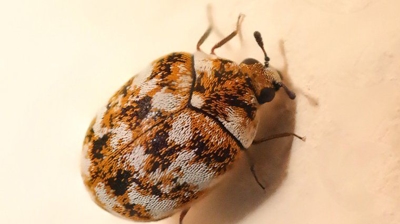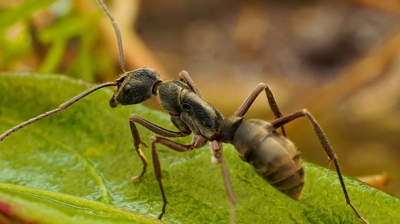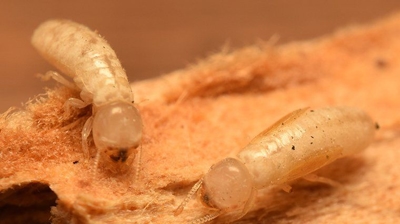
Termites Be Gone: Proven Techniques for Successful Termite Control In Lawrenceville
The two most destructive kinds of termites in the United States are subterranean and drywood termites. We deal with both in Lawrenceville, but subterranean termites are, by far, the worst. They're not just worse here; they're worse across the country. Why are they so bad? It has to do with how they avoid detection. Unlike drywood termites, subterranean termites don't produce frass piles in your home. That means you won't see piles of sawdust-like material. They also don't damage hardwood like drywood termites do. That means you aren't going to see a hole in your door or window frame and say, "Is that termite damage?" The damage caused by subterranean termites is concealed. You'll have to search for it. Today, we're going to zero in on the issue of subterranean termite control in Lawrenceville. We'll tell you how to find and detect damage and locate evidence that you have active termites. Then, we'll tell you how to get rid of them. As always, your ProCare Pest Services service team is here to assist if you need a termite inspection or professional termite control in Lawrenceville. Connect with us through our Contact Us page, or just call.
You're Not Likely To See A Termite: How To Identify Signs Of Activity
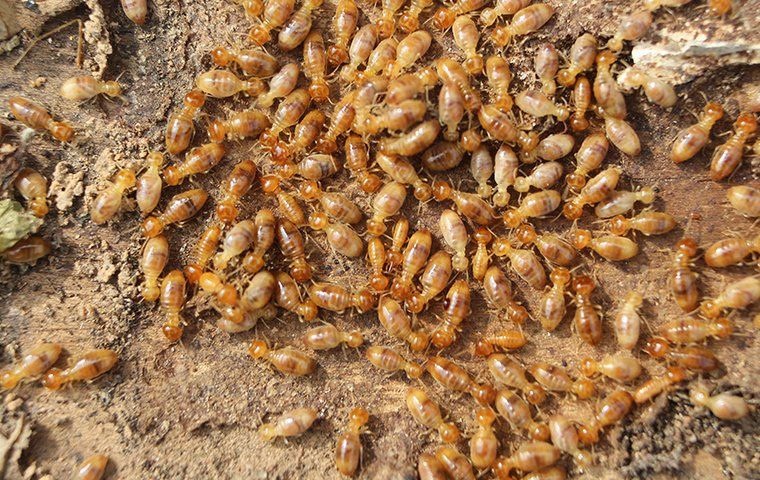
It is incredibly rare to see termites. While there are a few different kinds of termites in a termite colony, all of them avoid detection in their own ways. The queen sits at the heart of the colony, which is hidden in the ground. Termite workers and soldiers travel together in search of food. The workers gather the food, and the soldiers protect them. Both stay hidden in absolute darkness the entire time. Workers have an aversion to light and are known to avoid all light sources, even the reflected light from the moon. Termite reproductive hide themselves in the ground or inside wood as they work to make satellite nests. Some reproductive grow wings and will leave the source nest and take to the air. These are the most noticeable termites because they do not have an aversion to light. But don't get too excited about having these termites as a warning sign. Most swarms last less than an hour and typically only occur in the spring. So you have a very small window to see them. On top of this, a termite swarmer is only about ? of an inch long. If you see one crawling on your back deck, you may pay no attention to it at all. So, how do you detect termites?
Look for shelter tubes. Subterranean termites create shelter tubes out of saliva and soil, which is why they're often called mud tubes. The structures are essentially made of mud. You'll need to look in dark, damp locations to find these tubes. As we pointed out, workers avoid the light. They're also prone to dehydration and will stay where moisture levels are high. Inspect your foundation underneath your deck, in a crawl space, behind your stairs, behind your landscape vegetation, etc. Shelter tubes look like wiggly lines of mud or mud veins. When stacked on top of each other, they can start to look like a thick column.
Look for termite damage. Subterranean termites do most of their damage inside the wood of your home. If there is exterior damage, you'll find it in the same places you'll find shelter tubes. In fact, as you search for damage, look for the presence of mud. The two go together. Subterranean termites bring soil up into their tunnels, making the tunnel walls gritty to the touch.
Listen for termite activity. If you have a large infestation, you might hear termites clicking inside your walls. That clicking is not the sound of workers eating the wood; it is the sound of soldier termites hitting their heads on the sides of the tunnel walls. They do this to warn the workers of an invading enemy.
Tap wood and listen. If you have termites eating structural timber, you may tell by tapping on it. A thick beam should not sound hollow, but it will if it has workers termites

Why Choose ProCare Pest Services?
-
Locally Owned & Operated
-
Timely Services Available
-
Free Inspections for Your Home or Business
-
Modern & Effective Pest Control Methods
Understanding The Termite Threat: Why Termites Infest Homes
Another fact you should understand about a termite problem is why they get into your home and eat the wood. There is a misconception that termites prefer to eat natural sources of decaying wood and won't eat a home if they find enough of their preferred food source, but termites grow their numbers in response to available food. If you dump a pile of dead branches in your yard, you will not prevent termite damage. You'll only be throwing the wood on the fire – figuratively speaking. The termites will feed on the wood, grow their colonies quickly, and apply an escalating threat to the wood of your home. At some point, they're going to feed on your property no matter how much "preferred food" they find. Do you see the issue?
The best way to address the threat of termites is to work to directly control their populations and eliminate their colonies. Let's turn now to termite prevention and control and how professionals address termite control.
-
"John was very responsive and willing to answer any questions we had"
First meeting with Procare and staff.
Marty C. -
"The ProCare team continuously provides wonderful and effective service"
The ProCare team continuously provides wonderful and effective service. Every technician we've had is friendly and considerate, true professionals, and very responsive to any questions or areas of concern we discuss.
Naomi G. -
"I am extremely pleased with ProCare!"
This company went out of its way to help me solve my dilemma and get me taken care of! I am very appreciative of their kindness and professionalism.
Juanita G. -
"Very knowledgeable and was patient with all our questions"
First time customer. Scheduling was a breeze and they sent me lots of reminders.
Dave J.
Professional Termite Extermination: Know When To Call In The Experts
Pest control is often thought of as reactionary. When a pest problem appears, it is time to call the experts. We hope you don't do this with termites. Termite control is about "preventing" termite damage. Take action now, and you won't have termite damage repair costs on top of your professional termite control. How do the experts at ProCare Pest Services deal with termites?
The tried-and-true method for termite control for over a century has been termiticide, but in the last two decades, researchers have discovered a new and better termite control solution: Termite Bait Systems. Are all baits the same? No. One product stands above the rest. It is the termite control system we deploy. Our product is a professional-grade, award-winning system with amazing real-world success. We use this termite bait system to arrest subterranean termite damage and detect termite activity. It takes advantage of the natural behavior of termite workers. Subterranean workers go in and out of structures, so the stations placed around the perimeter of your home will work to stop a current infestation as it works to prevent a new one. The bait is continually active 24/7/365. That means you always have protection. Best of all, our termite protection system provides termite monitoring over time. When termites take the bait, you'll know it. On top of this, our service team members perform inspections to check for any warning signs or conducive conditions. There is no better way to avoid termite damage.
Are you in Lawrenceville? Contact ProCare Pest Services for termite control near you. We're here to answer your questions and get you started with termite protection for your home. Now is the best time to call the experts about termite damage prevention.
Complete the form below to request your quote.

Stay In The Know
-
 Carpenter Bee Survival Guide: Identification, Control, And PreventionRead More
Carpenter Bee Survival Guide: Identification, Control, And PreventionRead More -
 Identifying A Bed Bug Infestation In LawrencevilleRead More
Identifying A Bed Bug Infestation In LawrencevilleRead More -
 Key Practices To Prevent Ticks On Your Lawrenceville PropertyRead More
Key Practices To Prevent Ticks On Your Lawrenceville PropertyRead More -
 A Helpful Pavement Ant Prevention Guide For Lawrenceville HomesRead More
A Helpful Pavement Ant Prevention Guide For Lawrenceville HomesRead More -
 Breaking the Flea Life Cycle In LawrencevilleRead More
Breaking the Flea Life Cycle In LawrencevilleRead More -
 Defeating Carpet Beetles And Reclaiming Your Lawrenceville HomeRead More
Defeating Carpet Beetles And Reclaiming Your Lawrenceville HomeRead More -
 Lawrenceville's Guide To Complete Ant RemovalRead More
Lawrenceville's Guide To Complete Ant RemovalRead More -
 Innovative Termite Control: Modern Solutions for Modern HomesRead More
Innovative Termite Control: Modern Solutions for Modern HomesRead More

